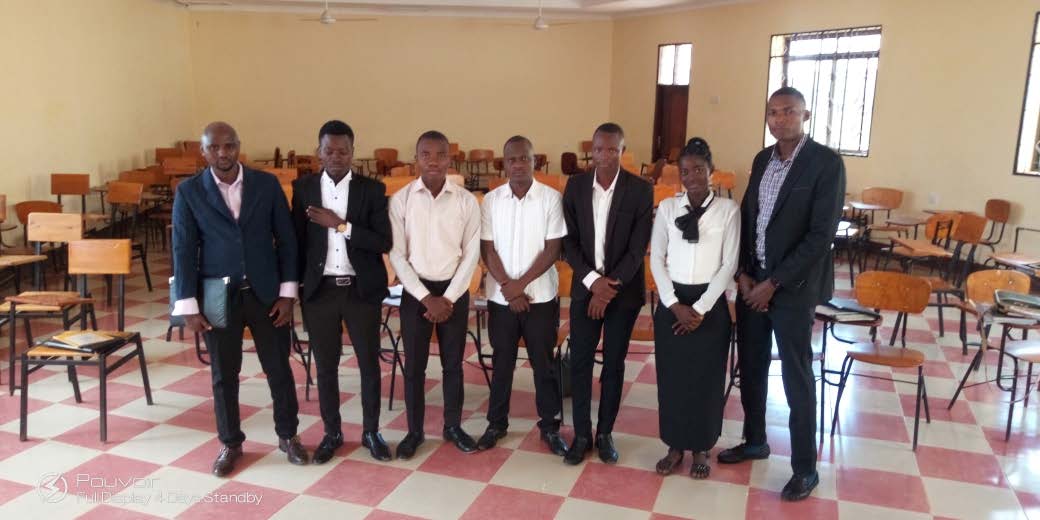|
<Editorial>
Higher education essential for community-based wild-life conservation
Kazuhiko Hosaka
Kamakura Women’s University, Japan Mahale Wildlife Conservation Society First, I would like to thank everyone who has financially supported our activities either as a long-time member or a one-time contributor for the Mahale Wildlife Conservation Society. Editing and publishing Pan Africa News (PAN) is one of our routine activities (Anonymous 2013). However, as the name of the society suggests, MWCS has a core mission to conserve wildlife in and around Mahale Mountains National Park, Tanzania. Although it is only natural that scientific approach should be required of the environmental conservation activities by researchers, one should not forget that community-based approach is vital for the success of any wildlife conservation plan on a long-term basis. For the indigenous people are rich in traditional knowledge about flora and fauna of the targeted area, on which the field scientists depend in the course of their project design and implementation. However, what is more important is to be aware of the priority in the indigenous people over all kinds of commercial and non-commercial activities in and around the protected area, and to guarantee each child in the communities the opportunity to acquire a strong sense of pride in their land (Nakamura et al. 2017) and high academic skills necessary to pursue any career including conservation-related work. Higher education is thus essential for the community-based wildlife conservation at Mahale. Poor educational infrastructure due to remoteness has long kept the Tongwe, indigenous people of Mahale, from enjoying the same education as in urban areas. However, things have changed little by little since the end of 1990s, as primary education prevailed even in rural areas owing to the various efforts of some researchers and tour operators (see Hosaka and Nakamura 2015 for the detail). In October 2013, Mr. Butati R. Nyundo, the first MWCS special scholarship student, was awarded a diploma in wildlife management at the College of African Wildlife Management, Mweka, Tanzania (Hosaka 2013). While he works for Greystoke Mahale as a tour guide, he has just received a grant to undertake a research study to enhance community-based conservation of primates in Ntakata Forest about 25 km north of the Mahale Mountains National Park (The Rufford Foundation 2019). Following the success of Mr. Nyundo, MWCS decided to offer scholarships to two more young persons with aspirations to contribute to the local communities around Mahale. One is Mr. Shabani Rashidi Kitopeni (Figure 1). MWCS has sponsored him since October 2018 when he joined the one-year program for a certificate in law at Kigoma Training College, Kigoma, Tanzania. When he was awarded the certificate, MWCS allowed him to enroll in a two-year programme for a diploma in law. He aspires to work for the people of Katumbi, his home village, taking advantage of his legal knowledge. The other is Mr. Jabri Hamisi Bunengwa. MWCS has sponsored him since October 2019 when he enrolled in an ordinary diploma programme in primary education at the Mpuguso Teachers Training College, Tukuyu, Tanzania, where he had received a basic technician certificate in early childhood education. He may someday join the teaching staff of Katumbi Primary School which was built through grant assistance for Grassroots Projects by the Japanese Government. 
The endeavors of MWCS to assist the youth financially in higher education have just begun. I appreciate your understanding and continued support. REFERENCES Anonymous 2013. From the editors. Pan Afr News 20: 14. Hosaka K 2013. The 1st MWCS scholarship student awarded diploma. Pan Afr News 20: 24. https://doi.org/10.5134/180550 Hosaka K, Nakamura M 2015. Conservation and the future. In: Mahale Chimpanzees: 50 Years of Research. Nakamura M, Hosaka K, Itoh N, Zamma K (eds), Cambridge University Press, Cambridge, UK, pp. 679–690. https://doi.org/10.1017/CBO9781107280533 Nakamura M, Nakazawa N, Nyundo BR, Itoh N 2017. Tongwe names of mammals: Special reference to mammals inhabiting the Kasoje Area, Mahale Mountains, western Tanzania. Afr Stud Monogr 38: 221–242. https://doi.org/10.14989/228149 The Rufford Foundation 2019. Butati Nyundo: Community-based study to enhance conservation of primates in Ntakata Forest, western Tanzania. Accessed 30 December 2019. https://www.rufford.org/projects/butati_nyundo Back to Contents |